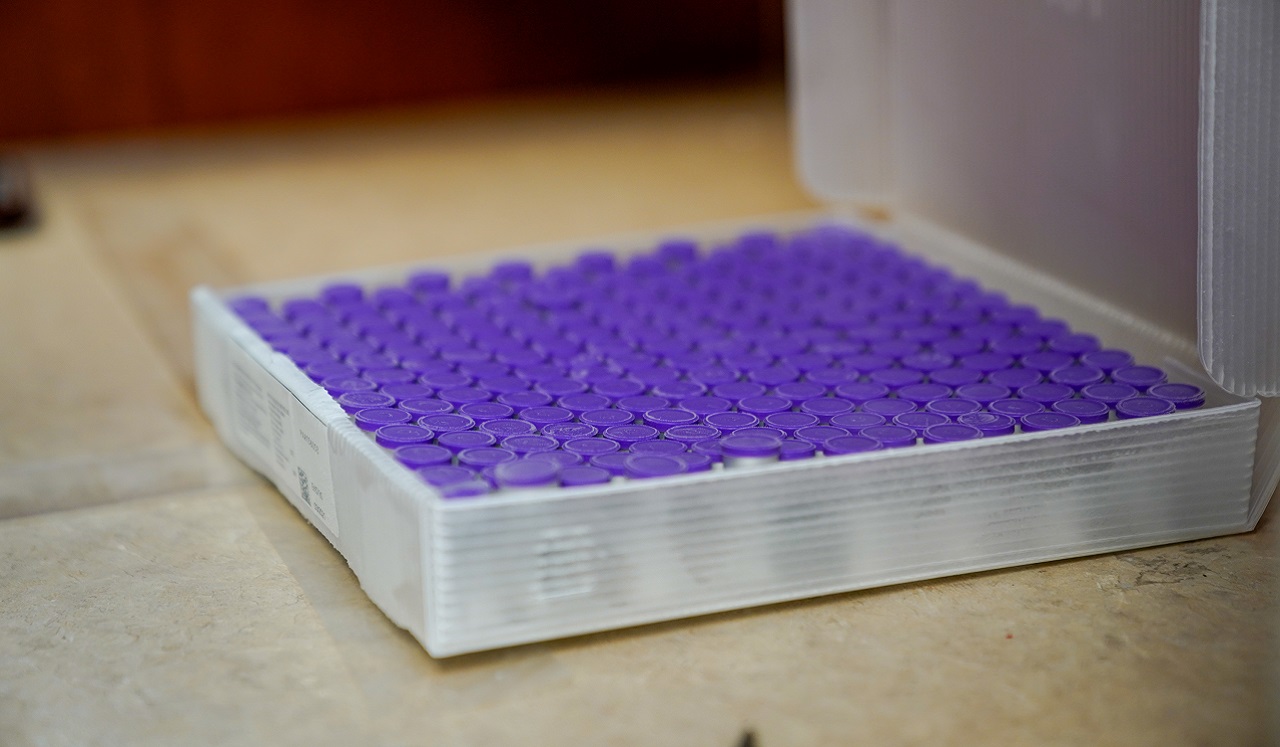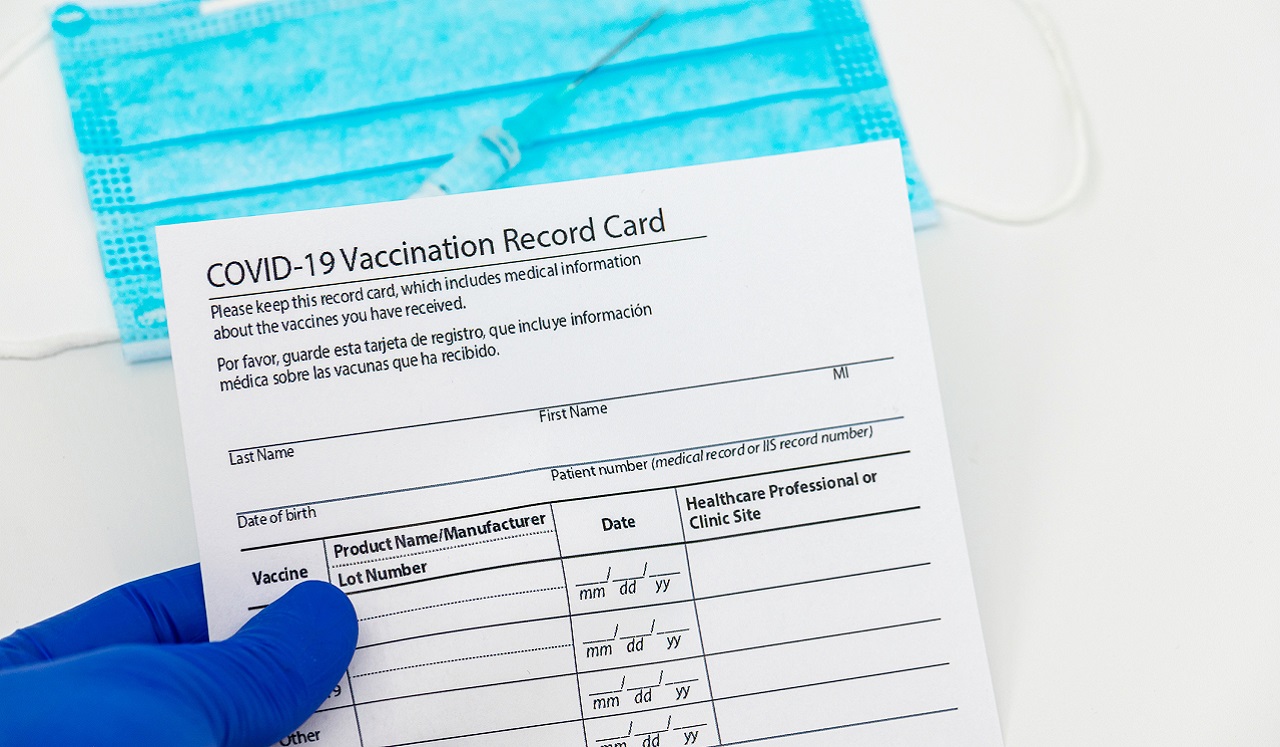February 26, 2021
You don’t like needles. Plus you’re anxious about the safety of COVID-19 vaccines—or the exposure of waiting in line to get one. We hear you. Here are answers to common COVID-19 vaccine questions from infectious disease experts.
Q. What’s the point of getting vaccinated?
A. All three vaccines have been found to be 100% effective in preventing hospitalizations and deaths from COVID-19.
The vast majority of people exposed to the virus or one of the variants, will have mild cold-like symptoms. That’s far better than the risk of death or serious heart, lung and other illnesses that could accompany the virus.
Q. Can you get COVID-19 from the vaccines themselves?
A. No, COVID-19 vaccines don’t contain the actual virus.
It’s important to remember that none of the approved vaccines kick in instantly. It takes a few weeks after the second shot of the Pfizer or Moderna vaccine or after the one Johnson & Johnson vaccine to gain the full benefits of the vaccination. But once you’re armed with a full defense, you’ll be protected.
Q. How do vaccines help protect us?
A. Vaccines are the best way to prevent COVID-19. They partner with your body’s natural defenses to fight the virus should you be exposed to it.
Q. Did the rush to create the vaccines make them unsafe?
A. No. No safety protocols or tests were skipped when creating and reviewing the vaccines.
Even before the pandemic, drug companies were studying ways to improve immunity-boosting vaccines against viruses, including coronaviruses. The formal name of the coronavirus that led to the pandemic is SARS-CoV-2. So, the COVID-19 vaccines were created using thoroughly vetted methods of inoculating people against viruses, including SARS, a virus that existed prior to the pandemic.
Those who participated in studies were followed for 2 months or longer. In fact, the U.S. Food and Drug Administration, drug companies and the National Institutes of Health continue to study the vaccines.
And an independent, nonbiased committee of infectious disease experts closely reviewed the clinical trials to ensure vaccines worked and are safe.
Q. What types of COVID-19 vaccines are available?
A. The Pfizer and Moderna vaccines are given in two shots, spaced 3 to 4 weeks apart. The second should give you the full protection. If you are told to get two shots, be sure to do so.
The Johnson & Johnson vaccine only requires one dose. All three vaccines have been found to be 100% effective in preventing hospitalizations and deaths from COVID-19.
Q. Should I get vaccinated if I already had COVID-19?
A. Yes. You can get infected more than once. You may have read that having had the coronavirus strengthens your immune system against the disease. But we don’t know yet just how long that protection lasts. And vaccination is not only safe, but the best weapon against COVID-19.
Do let your doctor, nurse and clinic know you’ve had the virus and when.
Q. Could I catch the coronavirus while in line waiting to be vaccinated?
A. Minimize your risk by wearing a mask and watching your distance.
Q. Once I’m vaccinated, why do I still have to wear a mask?
A. According to the U.S. Centers for Disease Control, fully vaccinated people no longer need to wear a face mask or stay six feet away from others in most settings, whether indoors or outdoors. Exceptions include health care facilities like Memorial Hermann, nursing homes, on public transportation and in businesses that mandate them.
Q. Do I have to be a legal resident to get vaccinated?
A. No. Your immigration status does not matter. You are eligible to receive the vaccines—and any information you give will not be used against you. Vaccinations are given at no expense to you, financial or otherwise.
Q. Where can I learn more about the COVID-19 vaccines?
Visit:
- U.S. Food & Administration: COVID-19 Vaccines
- Memorial Hermann Coronavirus Information
- UTHealth COVID-19 Dashboard
- Centers for Disease Control & Prevention
Q. I have a fever or feel ill. What can I do?
A. Call the free 24/7 Nurse Health Line. You can talk to our trained nurses about your health concerns. Bilingual interpreters are available. Call (713) 338-7979 or visit nursehealthline.org.
The information in this article was accurate as of May 13, 2021.
In Dec. 2021, the CDC issued a preferential recommendation for the use of the mRNA COVID-19 vaccines currently available in the U.S. (Pfizer and Moderna) over the Johnson & Johnson vaccine, citing rare but serious side effects. Throughout the pandemic, Memorial Hermann has closely followed guidance from the CDC as well as the U.S. Food & Drug Administration (FDA) and the State. As such, Memorial Hermann now recommends the Pfizer and Moderna COVID-19 vaccines over the Johnson & Johnson vaccine for those who meet vaccine eligibility.


